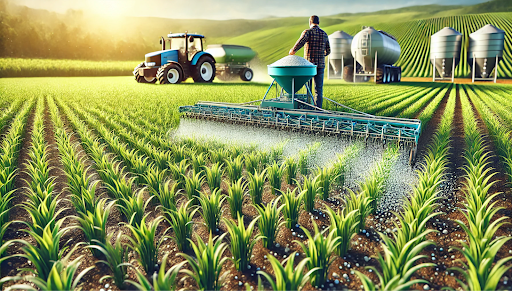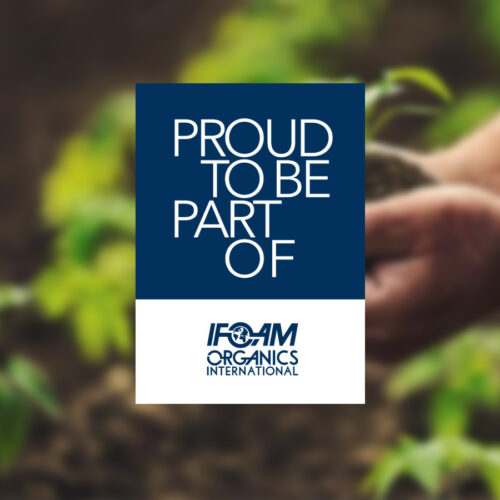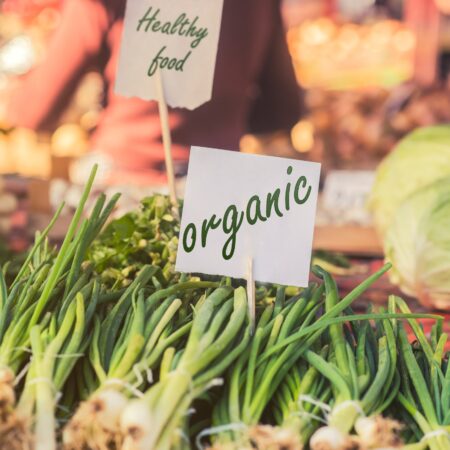
Soil is the foundation of agriculture, and ensuring its health and fertility is crucial for maintaining food security, environmental balance, and long-term sustainability. With growing concerns about climate change, biodiversity loss, and soil degradation, sustainable farming practices are more important than ever. In this article, we explore the principles of sustainable soil preparation and the benefits of using innovative solutions like PRECOGROW, a highly-concentrated complex fertilizer designed to enhance soil health and boost crop growth.
The Importance of Soil Health
Soil is much more than dirt—it’s a complex living ecosystem that supports life on Earth. Healthy soil contains a balanced mixture of minerals, organic matter, and billions of microorganisms, all of which work together to promote plant growth, store carbon, and regulate water cycles. However, traditional farming techniques—such as intensive tilling, monocropping, and over-reliance on chemical fertilizers—have degraded soil health globally. According to the FAO, up to 33% of the world’s soil is already degraded due to erosion, compaction, and nutrient loss (FAO Soils Portal).
Principles of Sustainable Soil Management
- Conserving Soil Structure: Sustainable farming practices aim to maintain and improve the physical structure of the soil, avoiding compaction and erosion.
- Enhancing Soil Fertility: Naturally boosting the soil’s nutrient content and microbial activity without synthetic chemicals is key.
- Water Conservation: Efficient water management through practices like mulching and cover cropping helps retain soil moisture and reduce runoff.
- Biodiversity Promotion: A diverse ecosystem in the soil helps cycle nutrients and protect against pests and diseases.
- Carbon Sequestration: Healthy soil captures carbon from the atmosphere, contributing to climate change mitigation.
PRECOGROW: A Breakthrough in Sustainable Soil Preparation
PRECOGROW is a highly-concentrated complex fertilizer and natural bio-stimulant developed to improve soil health and promote sustainable farming practices. It combines essential nutrients with organic compounds and beneficial microorganisms that help enhance plant growth, soil fertility, and nutrient availability. Here’s how PRECOGROW supports sustainable soil preparation:
Benefits of PRECOGROW in Sustainable Farming
1. Enhanced Soil Microbial Activity
Healthy soils are home to a diverse range of microorganisms, including bacteria, fungi, and protozoa, which break down organic matter and release essential nutrients into the soil. PRECOGROW stimulates these microorganisms, boosting biological activity in the soil. This creates a self-sustaining cycle of nutrient availability, reducing the need for chemical fertilizers.
Studies have shown that using fertilizers and bio-stimulants like PRECOGROW can increase microbial populations by up to 30%, leading to faster nutrient cycling and improved plant health (NCBI).
2. Improved Nutrient Uptake
PRECOGROW enhances the ability of plants to absorb nutrients from the soil, even in nutrient-poor or compacted soils. By promoting a symbiotic relationship between plants and soil microorganisms, it increases the availability of essential nutrients like nitrogen, phosphorus, and potassium. This not only improves crop yields but also reduces the need for synthetic fertilizers, which can harm soil health in the long term.
The use of PRECOGROW has been shown to increase the nutrient content in crops by up to 15%, leading to healthier plants and better-quality produce.
3. Soil Structure and Water Retention
PRECOGROW contributes to the development of soil structure by increasing the amount of organic matter and promoting the formation of soil aggregates. These aggregates improve soil porosity, allowing for better water infiltration and root penetration. This is especially important in sustainable farming, where water conservation is a priority.
In trials, fields treated with PRECOGROW showed a 20-25% improvement in water retention, reducing irrigation needs and increasing crop resilience during drought conditions (ScienceDirect).
4. Reduced Soil Erosion
Soil erosion is a major threat to global agriculture, often caused by wind, water runoff, and poor land management practices. PRECOGROW’s ability to promote stronger root systems and enhance soil structure helps anchor the soil, reducing erosion and nutrient loss. When used in combination with other sustainable practices like cover cropping and mulching, it can significantly slow down soil degradation.
A study found that fertilizers and bio-stimulants like PRECOGROW reduced soil erosion by 15-20% compared to fields using conventional farming methods (Journal of Sustainable Agriculture).
5. Environmental Benefits
PRECOGROW not only enhances soil health but also provides broader environmental benefits. By reducing the reliance on synthetic fertilizers and improving nutrient efficiency, it decreases the risk of nutrient runoff into water bodies, which can lead to harmful algal blooms and water contamination. Additionally, the increased organic matter content in the soil sequesters more carbon, contributing to climate change mitigation.
Sustainable Soil Preparation Practices
Sustainable soil preparation involves a combination of techniques that improve soil health, reduce erosion, and enhance fertility without relying on harmful chemicals. These practices ensure long-term productivity while protecting the environment. Here are some of the key sustainable soil preparation methods:
- No-Till or Minimal Tillage: No-till farming reduces soil disturbance, maintaining its structure and promoting biodiversity. This practice prevents erosion, improves water retention, and enhances soil carbon storage. Farmers report improved soil health and resilience with no-till methods due to better soil structure and reduced compaction.
- Cover Cropping: Cover crops, such as legumes, rye, and clover, are planted to protect and enrich the soil during off-seasons. These crops prevent erosion, add organic matter, and fix nitrogen in the soil, reducing the need for synthetic fertilizers. They also suppress weeds and disrupt pest cycles.
- Composting and Organic Fertilizers: Composting is an effective way to recycle organic waste into a rich soil amendment. It enhances soil structure, increases organic matter, and provides a slow-release source of nutrients. Using organic fertilizers like compost and manure boosts long-term soil fertility without the negative environmental impacts of synthetic fertilizers.
- Mulching: Mulching involves covering the soil with organic materials such as straw, wood chips, or grass clippings. This practice helps conserve soil moisture, reduce evaporation, suppress weeds, and improve soil fertility as the mulch decomposes. Mulching also protects the soil from erosion and temperature fluctuations.
- Agroforestry: Integrating trees and shrubs into farming systems, known as agroforestry, improves soil health by enhancing nutrient cycling and reducing erosion. Trees help capture nutrients deep in the soil, which are then made available to crops, while also providing shade and reducing water loss through evaporation. Agroforestry supports biodiversity, promotes carbon sequestration, and helps build resilient agricultural ecosystems.
Conclusion
Sustainable soil preparation practices such as minimal tillage, cover cropping, composting, mulching, and agroforestry are crucial for maintaining soil health, improving crop productivity, and promoting environmental sustainability. PRECOGROW, a highly-concentrated complex fertilizer, enhances these sustainable methods by boosting nutrient uptake, promoting microbial activity, and improving soil structure, making it an ideal tool for farmers focused on long-term soil care.
For further reading on sustainable soil practices, refer to these scientific resources:
References:
- FAO. (n.d.). “Soils Portal.” Food and Agriculture Organization of the United Nations. https://www.fao.org/soils-portal/en/
- NCBI. (n.d.). “No-till farming and microbial activity.” National Center for Biotechnology Information. https://www.ncbi.nlm.nih.gov/
- ScienceDirect. (n.d.). “Water retention and organic fertilizers.” https://www.sciencedirect.com/
- Journal of Sustainable Agriculture. (n.d.). https://www.tandfonline.com/
- Frontiers in Sustainable Food Systems. (n.d.). https://www.frontiersin.org/journals/sustainable-food-systems
By nurturing the soil, we nurture our future.





